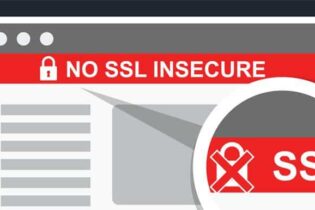
SSL certificates have long become essential for any website, ensuring data encryption and search engine visibility. But with so many options available, getting the best certificate for your site can be tricky. You must decide on the validation type and extra features and choose between paid or free alternatives.
This article covers free SSL vs paid SSL certificates in great detail, helping you understand the similarities and differences between the two options.
One of the first questions any website owner asks is – “Do I need to pay for an SSL certificate?” By the end of this piece, you will know the answer.
Table of Contents
- What Is the Difference Between Free SSL and Paid SSL?
- Free SSL Certs Susceptible to Hacker Abuse
- SSL Certificates Offered by SSL Dragon
What Is the Difference Between Free SSL and Paid SSL?
Free certificates are appealing and suitable in certain situations. But there’s a reason so many commercial CAs are on the market, offering all kinds of paid SSL certificates – they are more flexible and trustworthy.
Below, we’ve listed the main SSL features and how they work on free and paid certs.
1. Free SSL vs Paid SSL: Encryption
In terms of encryption, there’s no difference between free SSL and paid SSL. Both versions use the latest cryptographic protocols and technologies to ensure no attacker intercepts sensitive data transmitted between browsers and servers.
Free certificates like Let’s Encrypt, Amazon, and Cloudflare and commercial brands like Sectigo, DigiCert, and Thawte use the SHA-256 algorithms and TLS 1.2, 1.3 protocols. SSL Certificates provided by Let’s Encrypt are RSA-signed using 2048-bit RSA keys, which you can easily upgrade to 4096-bit RSA keys.
At the same time, the free SSL certificates offered by Cloudflare and Amazon come with the standard 2048-bit RSA keys for asymmetric encryption.
2. Free vs Paid SSL: Validation
Encryption is only a part of the SSL certificate core functions. Another critical aspect is identity verification through various validation methods, and here’s where paid SSL certificates excel.
SSL validation verifies the authenticity and integrity of an SSL certificate used by a website. It ensures that the certificate is issued by a trusted Certificate Authority and that the website’s identity matches the information in the certificate. SSL validation helps establish secure encrypted connections between users and websites, protecting sensitive information from unauthorized access or tampering.
Free SSL certificates support Domain Validation (DV) only. They can confirm that the applicant requesting the certificate controls the domain they intend to secure but can’t run more checks to establish the legal identity of the certificate requester. You can get a free DV cert in less than five minutes.
On the other hand, paid SSL certificates, besides Domain Validation, also offer Organization Validation (OV) and Extended Validation (EV) options. BV and EV certs verify business legitimacy and provide the highest assurance that the website is genuine. The only downside of such certs is the validation process itself, which requires additional documentation and takes between 1 to 3 business days.
3. Website Size
A free SSL certificate is suitable for entry-level websites or businesses that don’t process online payments. You can secure personal sites, blogs, online portfolios, and informational portals with a free certificate without facing any security or compliance issues.
Commercial BV and EV certificates are the usual choices for e-commerce platforms, non-profits, enterprises, fintech startups, and financial institutions operating in highly regulated industries and need a higher customer trust to remain competitive.
Generally, a larger and more complex website will opt for a paid certificate, while smaller sites with static content and no payment gateways may choose a free SSL option.
4. Customer Support
Certificate Authorities and companies that offer SSL Certificates for free, or include them among other services, are less likely to respond promptly to your support requests. Quickly solving the issue is crucial for your website’s security because waiting for a solution for too long can significantly damage your website and business.
When you buy an SSL certificate from the CA directly or from an SSL Vendor like SSL Dragon (the best and cheaper option), you also get dedicated support around the clock for any potential problem you may face during certificate order or configuration.
5. Geo-Restrictions
The free SSL Certificates provided by Amazon may not be available for your region. This is a significant inconvenience for companies activating outside those areas. Also, these free SSL Certificates can be installed only by Amazon customers who use Elastic Load Balancers and Amazon CloudFront, which makes it impossible to install them if you are using another hosting company.
When you get a paid SSL certificate from any CA, you can install it almost anywhere in the world. If you’re able to buy it in your jurisdiction, you’ll be able to secure your local websites. Commercial CAs may not operate in certain countries due to political and economic reasons. In this case, a free SSL certificate can be a good alternative.
6. Ownership
When you buy a paid SSL certificate, you get full ownership and can install it on any server and hosting provider. The certificate is yours, and you have complete control over it. However, this is not always the case with free certs.
Amazon and Cloudflare offer free certificates for their clients only, and if you switch your AWS or CDN provider, the certificate won’t be valid anymore. For instance, Cloudflare installs free SSL certificates on its caching servers, not the origin server where you host your website. Thus, Cloudflare is an intermediary between the browsers and your web server.
7. Browser Compatibility
Paid SSL certificates are compatible with 99.9% of browsers, including old and legacy versions, thanks to the intermediate certificates within the SSL chain of trust. They also work flawlessly on most mobile devices and mobile browsers. Most operating systems, email clients, and VPN appliances also support paid SSL.
Free certificates have good browser support but not on the scale of their commercial counterparts. They’re more unpredictable on legacy browsers or lesser-known systems and won’t work on some older mobile phones. Moreover, installing a free certificate on some platforms isn’t straightforward and requires advanced technical knowledge.
8. Security Features
Besides encryption, premium paid certificates come with additional security enhancements to further protect websites from cyber threats. Advanced vulnerability assessments and daily malware scanning prevent hackers from launching multiple attacks and keep online businesses safe.
Free SSL certs don’t have such features and capabilities.
9. Validity Period
Free SSL certificates are valid for 90 days only, and while on some servers, you can automate the renewal process, some systems don’t have this feature. Manually renewing the certificate every three months isn’t efficient security-wise, especially if you manage multiple certs.
All paid SSL certificates have a maximum lifespan of 1 year, but you can also get a multi-year SSL subscription and a nice discount when buying multiple years. A longer SSL validity means less frequent certificate renewal, reducing administrative overhead and potential downtime associated with the renewal process.
10. Warranty
A paid SSL certificate includes an SSL warranty against potential data leaks and fraudulent certificate issuance. The warranty covers financial losses incurred by clients in the unlikely event of a security breach. It ranges from thousands to over a million dollars.
On the contrary, free certificates don’t have an SSL warranty and won’t offer compensation in case of a security incident.
Free SSL Certs Susceptible to Hacker Abuse
Cybercriminals have already abused free SSL Certificates by taking advantage of the SSL Certificates’ system of trust. Hackers abused the system by getting SSL certificates for fake websites hosted on sub-domains related to legitimate domain names. In most cases, the domain owner was unaware of the problem and wasn’t able to prevent it.
Moreover, phishers use free certificates to scam customers. We’ve written an article on this alarming phishing trend, discussing the dangers of phishing and possible solutions. Unfortunately, the noble intentions of the likes of Let’s Encrypt to offer universal encryption, have been misused by cybercriminals.
SSL Certificates Offered by SSL Dragon
At SSL Dragon, we offer a wide range of paid SSL certificates from the leading Certificate Authorities to meet any need. Whether you have a personal site, a small e-commerce shop, a non-profit, or a large business website, our affordable certificates will provide high-end encryption, compliance, and customer trust.
Bottom Line
Ultimately, the difference between free SSL vs. paid SSL certificates comes down to the level of trust and assurance they provide.
Paid SSL certificates are issued by trusted Certificate Authorities (CAs) that have undergone rigorous verification. They offer more validation options and can secure complex systems while providing better customer support.
On the other hand, free SSL certificates are typically issued by automated systems, which don’t undergo the same level of vetting, resulting in lower trust.
Save 10% on SSL Certificates when ordering today!
Fast issuance, strong encryption, 99.99% browser trust, dedicated support, and 25-day money-back guarantee. Coupon code: SAVE10



























